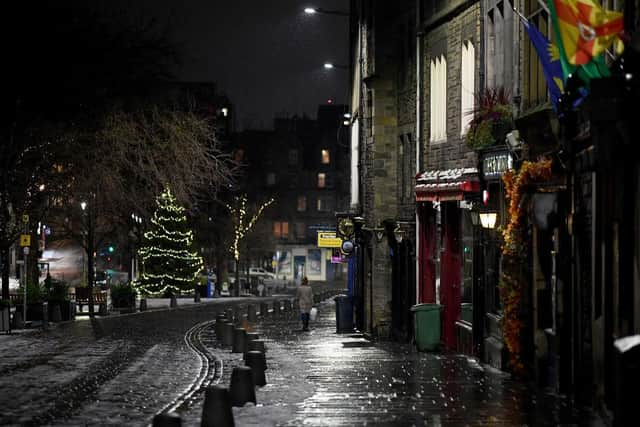Covid Scotland: How long will the new restrictions announced by Nicola Sturgeon last?
From December 26, large events will be cancelled, and from the following day pubs will be required to return to table service.
Events will be limited to 100 people standing indoors, 200 people seated, and 500 people outdoors.
Advertisement
Hide AdAdvertisement
Hide AdPubs and other venues serving alcohol will need to operate table service from December 27, and indoor hospitality and leisure venues will need to maintain one metre social distancing between different groups of customers.


The new rules will be in place for three weeks, Nicola Sturgeon has said.
But could they go on for longer?
Health secretary Humza Yousaf told Sky Sports the new restrictions will be under “regular review” and claimed the Scottish Government “won’t keep them in place for a minute more than they have to be”.
But some businesses and event organisers fear the curbs could be extended.
Organisers of Glasgow’s Celtic Connections music festival, set to begin on January 20 and run to February 5, said the new restrictions and the three-week timeline have created “uncertainty”.
“These restrictions and the timeline against future reviews present significant challenges for the festival,” organisers said in a statement.
They added: "We are reviewing all aspects of the festival and programme on an ongoing basis and looking at how we showcase the very best traditional folk and roots music that Scotland and the world has to offer."
Officials at the Burns and Beyond festival in Edinburgh have cancelled all live events up to February 5.
Advertisement
Hide AdAdvertisement
Hide AdAn extension of restrictions would not be unusual, as the Scottish Government has often implemented measures for an initial period and then extended them amid an evolving picture of Covid-19.
National clinical director Jason Leitch has warned Scotland is “nowhere near” the peak of the Omicron wave, which may occur in late January or early February.
"The modelling suggests the peak of this wave is a little bit unpredictable, but probably into late January, early February, so that gives you some idea of where we're headed," he told the BBC this week.
A message from the Editor:
Thank you for reading this article. We're more reliant on your support than ever as the shift in consumer habits brought about by coronavirus impacts our advertisers.
If you haven't already, please consider supporting our trusted, fact-checked journalism by taking out a digital subscription.
Comments
Want to join the conversation? Please or to comment on this article.
